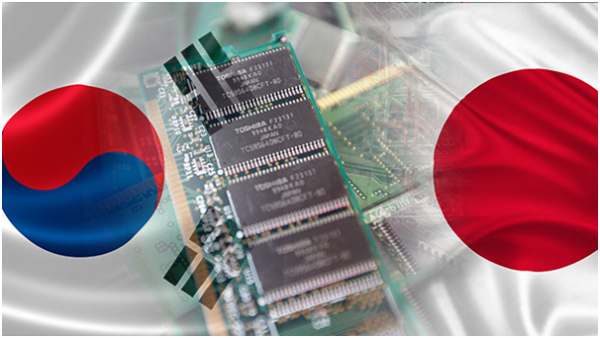The RoK Ministry of Trade, Industry and Energy has announced the revision of the list of exports and imports of strategic commodities. Accordingly, the RoK restored the export of items related to Japan, allowing companies exporting strategic items to Japan to enjoy priority rules during the review and simpler paperwork. With the designation of Japan back to the “white list”, the export license review period for domestic companies exporting strategic materials to Japan is reduced from 15 days to 5 days, and the number of required documents is reduced to three from five.
Thus, Japan will return to the group of 29 preferential countries in the RoK’s trade policy. Meanwhile, the Japanese side has yet to give details on when to put the RoK back on the preferential trade list. According to the RoK officials, Japan needs more time to complete internal procedures because it needs to amend the law. However, since March, Japan has lifted export restrictions to the RoK on three strategic materials, including fluorinated polyimide, photoresist and hydrogen fluoride, for the production of semiconductors and displays.
In 2019, the RoK removed Japan from the “white list” in response to a Korean Supreme Court ruling, that ordered two Japanese companies to compensate victims of forced labour during the second world war. Bilateral relations have warmed up after the RoK announced a plan to compensate victims of wartime forced labour through a fund contributed by private businesses, instead of requiring Japanese companies to pay compensation. On March 5, the RoK and Japan agreed to establish a “Future Youth Fund”, to sponsor scholarships for students, as part of this agreement. The fund was established by the Federation of Korean Industries (FKI), in collaboration with the Japan Business Federation (Keidanren).
Recently, a series of meetings between Japanese and RoK officials have been held to improve relations between the two countries, which have been strained for a long time, due to historical and diplomatic disputes. The RoK and Japan are negotiating to launch two dialogue channels on economic security and national security, following the summit between RoK President Yoon Suk Yeol and Japanese Prime Minister Fumio Kishida in March. The economic security dialogue is expected to see the participation of the national security councils of the two countries and the national security dialogue is anticipated to see the participation of officials from the foreign and defence policy agencies of the two countries. The economic security dialogue is expected to serve as a forum for discussions on supply chain issues related to semiconductors, electric vehicles and batteries, as well as the two countries’ joint responses to measures to control economic pressures.
Thereby, Seoul and Tokyo can also discuss their responses to the US Inflation Reduction Act and the US Chips and Science Act, amid concerns that the laws could be harmful to businesses. Meanwhile, the national security dialogue will help Seoul and Tokyo coordinate their responses to developments on the Korean peninsula and issues of mutual concern.
The establishment of dialogue channels on economic and national security between Japan and the RoK, along with the most recent move to remove policy barriers, helps the two countries open the door for cooperation and building relationships for the future. This is an effective confidence-building measure and a positive sign, contributing to the maintenance of peace and development in Northeast Asia.
















